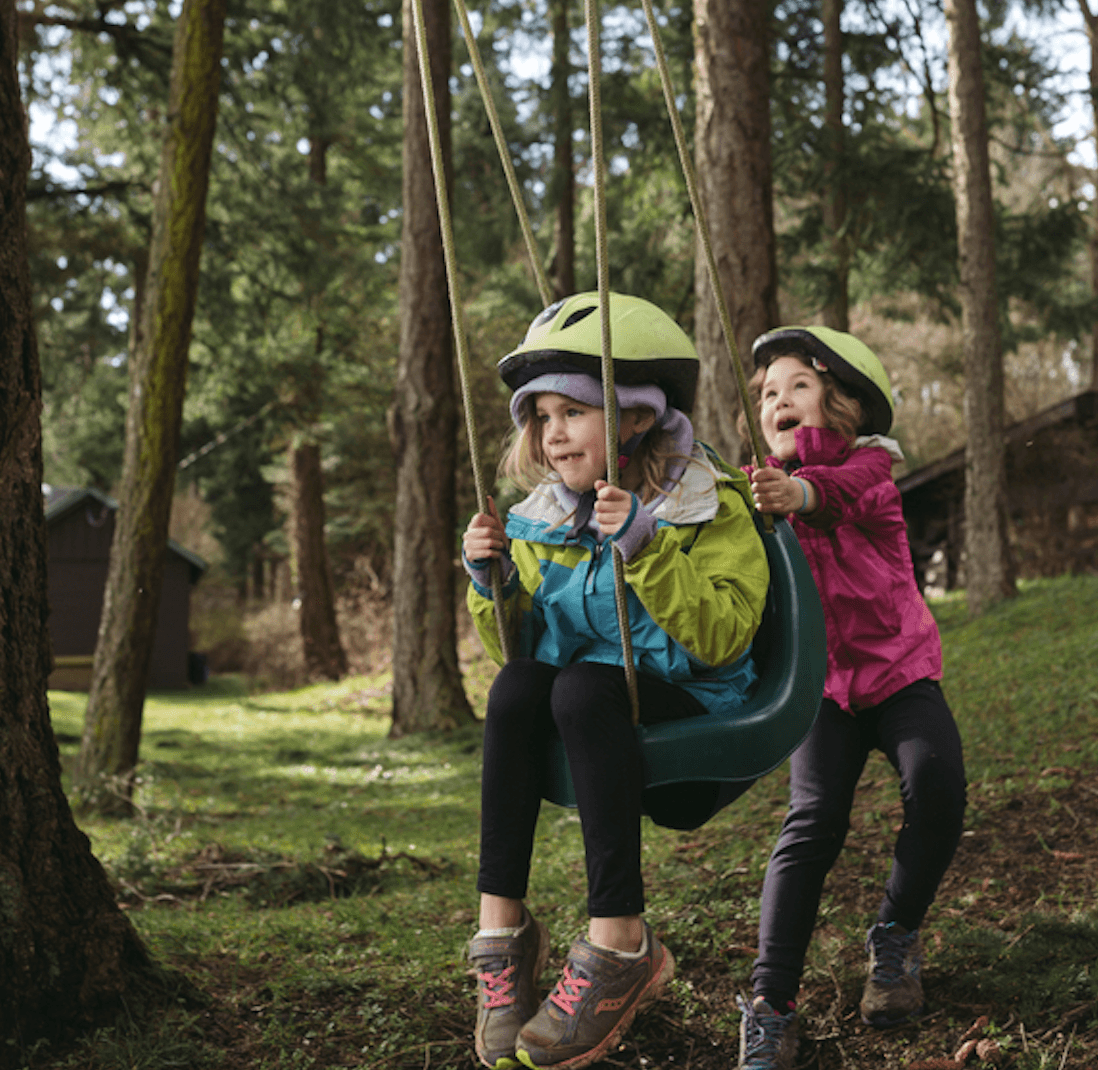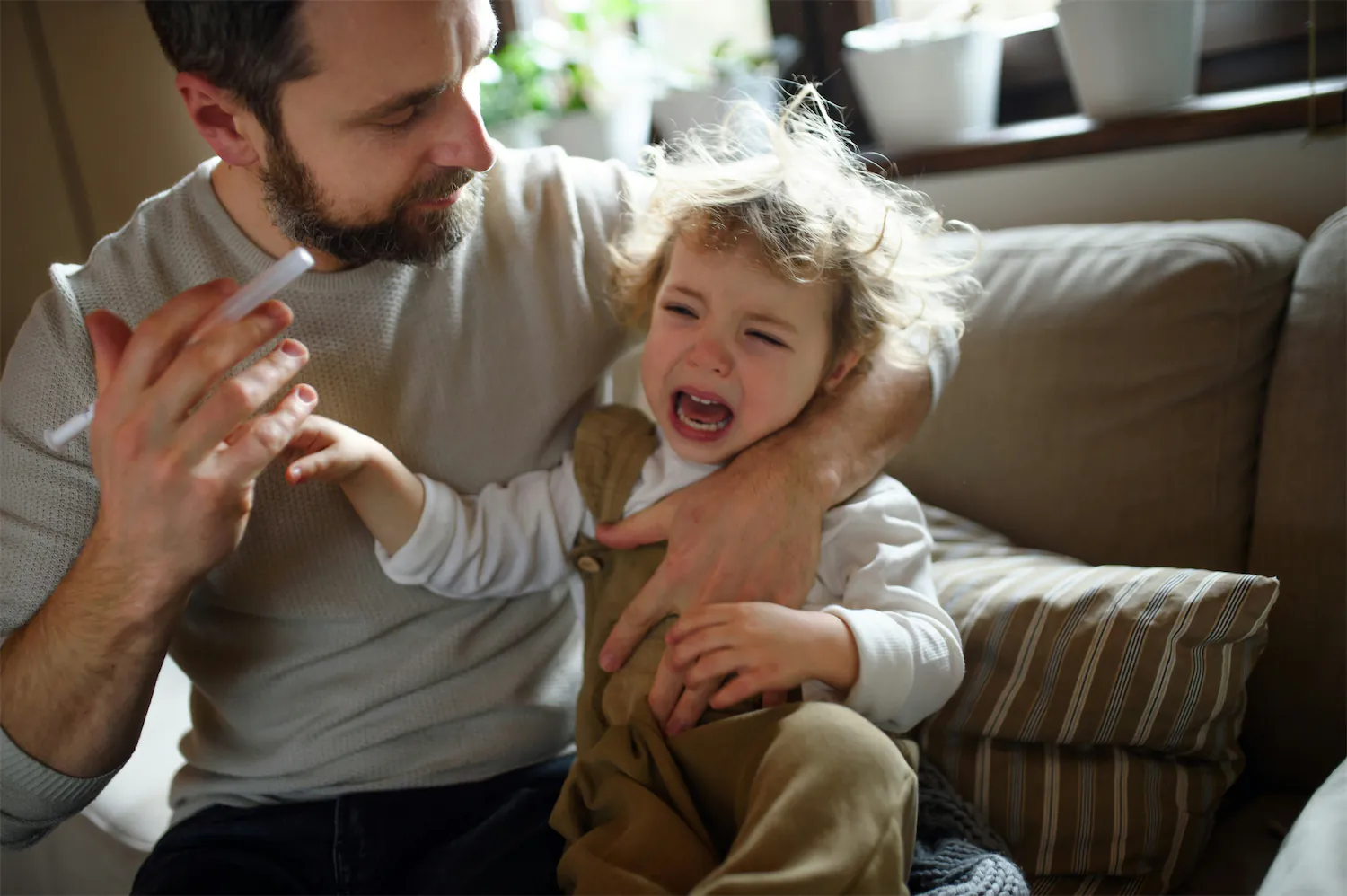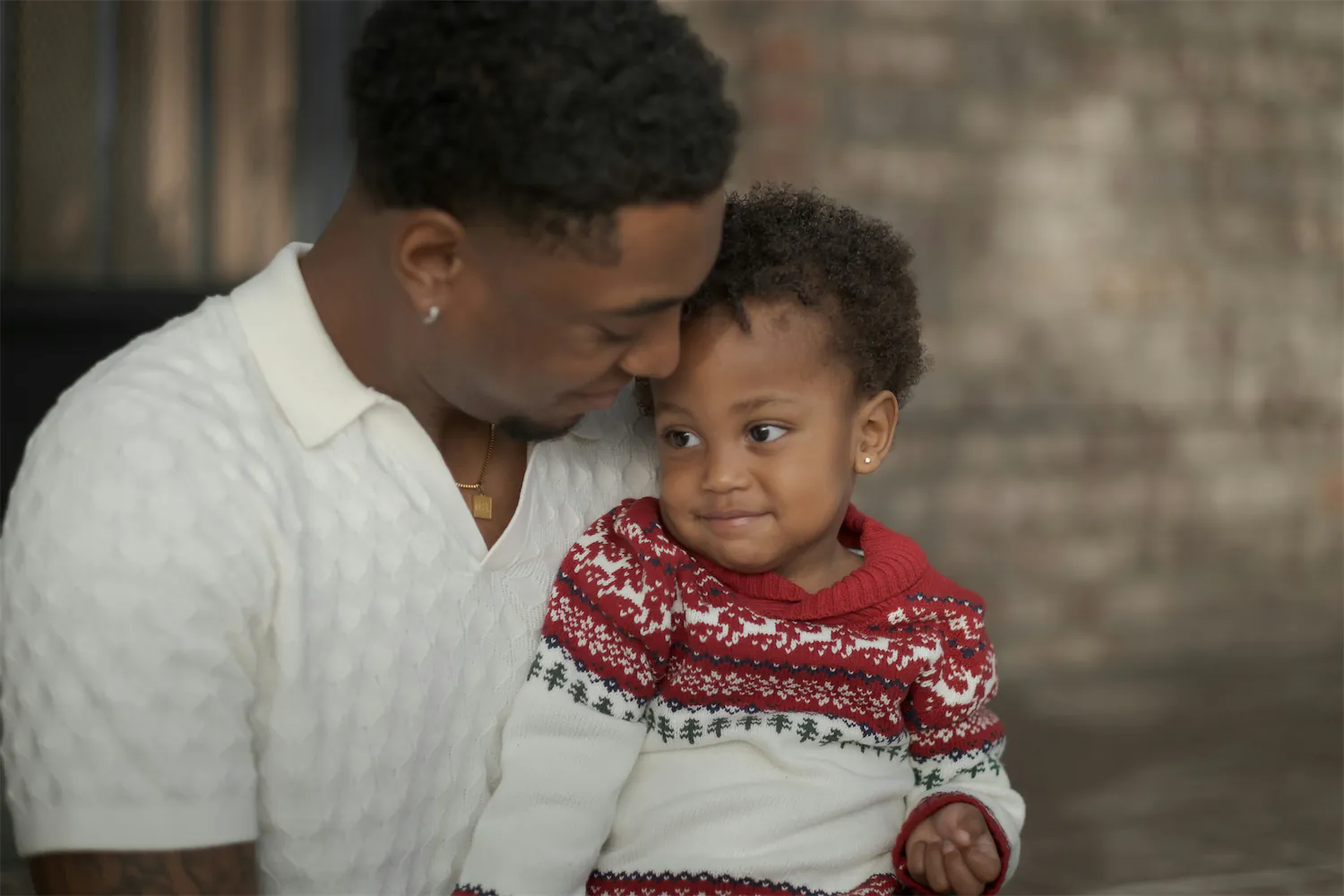Sunscreen for Kids and Babies
Sunscreen for Kids and Babies
Spring is upon us, and there is no better feeling than a sunny day at the park with your kids. Whatever the season may be, wearing sunscreen is as important as a healthy diet for kids.
Spring is upon us, and there is no better feeling than a sunny day at the park with your kids. Whatever the season may be, wearing sunscreen is as important as a healthy diet for kids.

Dahlia Rimmon, RDN
Content Writer

Dr. Alisa Roysman
Pediatrics



“Children's skin is particularly vulnerable to UV damage because it is thinner and more delicate than adult skin, and because they tend to spend more time outdoors. Wearing sunscreen with at least SPF 30, along with protective clothing and seeking shade during peak sun hours, can help reduce the risk of UV damage and promote healthy skin for children.”
Dr. Alisa Roysman
Why should children wear sunscreen?
There are many important reasons to apply sunscreen to your little one:
Protection from Sunburn: Sunburn can cause painful redness and blistering on the skin, especially in children. It can also lead to long-term skin damage, including premature aging and skin cancer.
Preventing Skin Cancer: According to the Skin Cancer Foundation, sunburns in childhood can increase the risk of developing skin cancer later in life.
Lowering Risk of Heatstroke: Sunburn can lead to heat exhaustion or heatstroke, a potentially life-threatening condition.
Protection from UV Damage: UV rays can cause skin damage even on cloudy or overcast days.
What kind of sunscreen should I use on my child?
When choosing a sunscreen for your child, it is important to select one that provides broad-spectrum protection against both UVA and UVB rays and has a sun protection factor (SPF) of at least 30. Look for sunscreens that are labeled as "child-friendly" or "pediatric," as these are specifically formulated for children's skin and are less likely to cause irritation.
When it comes to babies and small children, we strongly recommend using a physical sunscreen that contains zinc oxide or titanium dioxide as the only active ingredients . These work by sitting on top of the skin and reflecting the sun's rays, rather than being absorbed into the skin. These types of sunscreens are less likely to cause skin irritation or allergic reactions.
Here is one we love!
Should babies wear sunscreen?
According to the American Academy of Pediatrics (AAP), babies under 6 months of age should generally be kept out of direct sunlight and avoid prolonged exposure to the sun. The skin of babies under 6 months is thinner and more sensitive to the chemicals in sunscreen, and their skin has less melanin, which provides some natural protection against the sun's UV rays.
If you must take your baby outside, we recommend dressing them in lightweight long pants, long-sleeved shirts, and wide-brimmed hats that shade the face, neck, and ears. You can also use an umbrella or a stroller canopy to provide additional shade.
If shade is not available, you can use a small amount of sunscreen on areas that cannot be covered by clothing, such as the face and backs of the hands. It's essential to choose a sunscreen that is specifically formulated for babies and does not contain harmful chemicals or fragrances.
If your baby has a history of eczema or other skin conditions, you should consult with a pediatrician or a dermatologist before using any sunscreen on their skin. If you have questions, you can connect with a pediatrician at Summer Health today.
How to best apply sunscreen to your child
When applying sunscreen, it is essential to apply it correctly to ensure the best protection for your child's skin. Here are some tips to help you apply sunscreen effectively:
Choose a sunscreen with a minimum SPF of 30 and broad-spectrum protection that blocks both UVA and UVB rays.
Apply sunscreen generously to all exposed skin, including the face, neck, and ears.
Reapply sunscreen every two hours or after swimming or sweating.
Encourage children to wear protective clothing, such as hats and long-sleeved shirts, to provide additional sun protection.
We’re parents, and we’ve tried a bunch of hacks to get our kids to wear sunscreen. Our favorite is to use a soft brush (we recommend the MODA brush) to allow kids to apply it to themselves.
Does my child need to wear sunscreen in the winter or on a cloudy day?
Yes, your child should wear sunscreen in the winter and on cloudy days as well, especially if they will be spending time outdoors for extended periods of time. Even though the sun may not feel as strong, harmful UV rays can still penetrate the skin and cause damage, leading to sunburn and an increased risk of skin cancer.
In addition, snow and ice can reflect the sun's rays, which can increase your child's exposure to UV radiation. This is particularly true at high altitudes, where the atmosphere is thinner and provides less protection against the sun's rays.
In Conclusion
Sunburn and long-term skin damage can lead to various health problems, including skin cancer and heatstroke. By using sunscreen, parents can provide the best protection for their child's skin and ensure their overall health and wellbeing.
“Children's skin is particularly vulnerable to UV damage because it is thinner and more delicate than adult skin, and because they tend to spend more time outdoors. Wearing sunscreen with at least SPF 30, along with protective clothing and seeking shade during peak sun hours, can help reduce the risk of UV damage and promote healthy skin for children.”
Dr. Alisa Roysman
Why should children wear sunscreen?
There are many important reasons to apply sunscreen to your little one:
Protection from Sunburn: Sunburn can cause painful redness and blistering on the skin, especially in children. It can also lead to long-term skin damage, including premature aging and skin cancer.
Preventing Skin Cancer: According to the Skin Cancer Foundation, sunburns in childhood can increase the risk of developing skin cancer later in life.
Lowering Risk of Heatstroke: Sunburn can lead to heat exhaustion or heatstroke, a potentially life-threatening condition.
Protection from UV Damage: UV rays can cause skin damage even on cloudy or overcast days.
What kind of sunscreen should I use on my child?
When choosing a sunscreen for your child, it is important to select one that provides broad-spectrum protection against both UVA and UVB rays and has a sun protection factor (SPF) of at least 30. Look for sunscreens that are labeled as "child-friendly" or "pediatric," as these are specifically formulated for children's skin and are less likely to cause irritation.
When it comes to babies and small children, we strongly recommend using a physical sunscreen that contains zinc oxide or titanium dioxide as the only active ingredients . These work by sitting on top of the skin and reflecting the sun's rays, rather than being absorbed into the skin. These types of sunscreens are less likely to cause skin irritation or allergic reactions.
Here is one we love!
Should babies wear sunscreen?
According to the American Academy of Pediatrics (AAP), babies under 6 months of age should generally be kept out of direct sunlight and avoid prolonged exposure to the sun. The skin of babies under 6 months is thinner and more sensitive to the chemicals in sunscreen, and their skin has less melanin, which provides some natural protection against the sun's UV rays.
If you must take your baby outside, we recommend dressing them in lightweight long pants, long-sleeved shirts, and wide-brimmed hats that shade the face, neck, and ears. You can also use an umbrella or a stroller canopy to provide additional shade.
If shade is not available, you can use a small amount of sunscreen on areas that cannot be covered by clothing, such as the face and backs of the hands. It's essential to choose a sunscreen that is specifically formulated for babies and does not contain harmful chemicals or fragrances.
If your baby has a history of eczema or other skin conditions, you should consult with a pediatrician or a dermatologist before using any sunscreen on their skin. If you have questions, you can connect with a pediatrician at Summer Health today.
How to best apply sunscreen to your child
When applying sunscreen, it is essential to apply it correctly to ensure the best protection for your child's skin. Here are some tips to help you apply sunscreen effectively:
Choose a sunscreen with a minimum SPF of 30 and broad-spectrum protection that blocks both UVA and UVB rays.
Apply sunscreen generously to all exposed skin, including the face, neck, and ears.
Reapply sunscreen every two hours or after swimming or sweating.
Encourage children to wear protective clothing, such as hats and long-sleeved shirts, to provide additional sun protection.
We’re parents, and we’ve tried a bunch of hacks to get our kids to wear sunscreen. Our favorite is to use a soft brush (we recommend the MODA brush) to allow kids to apply it to themselves.
Does my child need to wear sunscreen in the winter or on a cloudy day?
Yes, your child should wear sunscreen in the winter and on cloudy days as well, especially if they will be spending time outdoors for extended periods of time. Even though the sun may not feel as strong, harmful UV rays can still penetrate the skin and cause damage, leading to sunburn and an increased risk of skin cancer.
In addition, snow and ice can reflect the sun's rays, which can increase your child's exposure to UV radiation. This is particularly true at high altitudes, where the atmosphere is thinner and provides less protection against the sun's rays.
In Conclusion
Sunburn and long-term skin damage can lead to various health problems, including skin cancer and heatstroke. By using sunscreen, parents can provide the best protection for their child's skin and ensure their overall health and wellbeing.
Summer Health offers fast and reliable pediatric urgent care through online doctors, all via text. Whether you’re worried about your baby's fever, rashes, or other children's health concerns, we provide expert advice and support anytime, right from your phone.

Never miss a post!
Sign up for our newsletter to receive articles and guides directly to your inbox!









